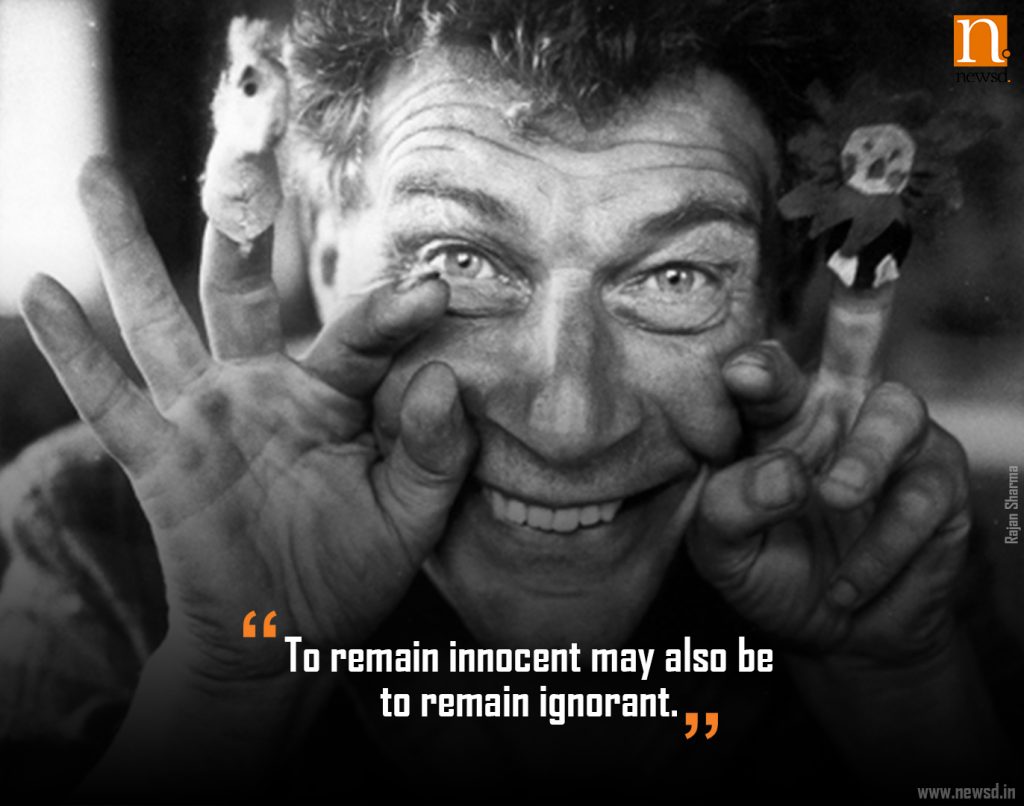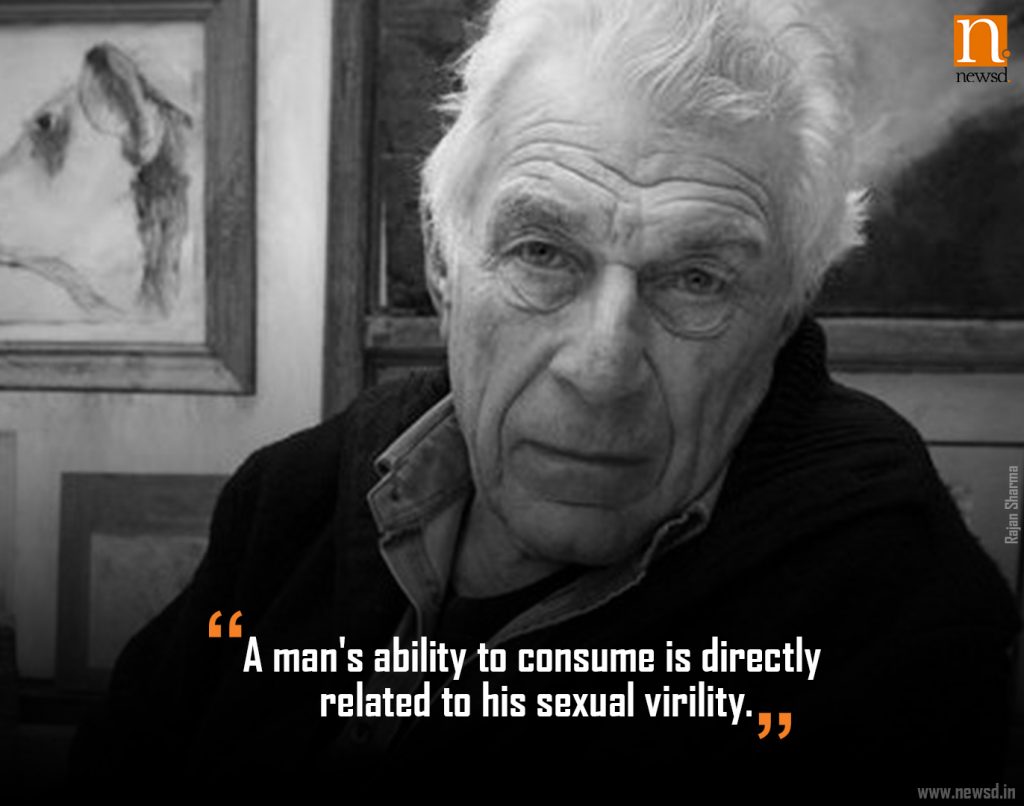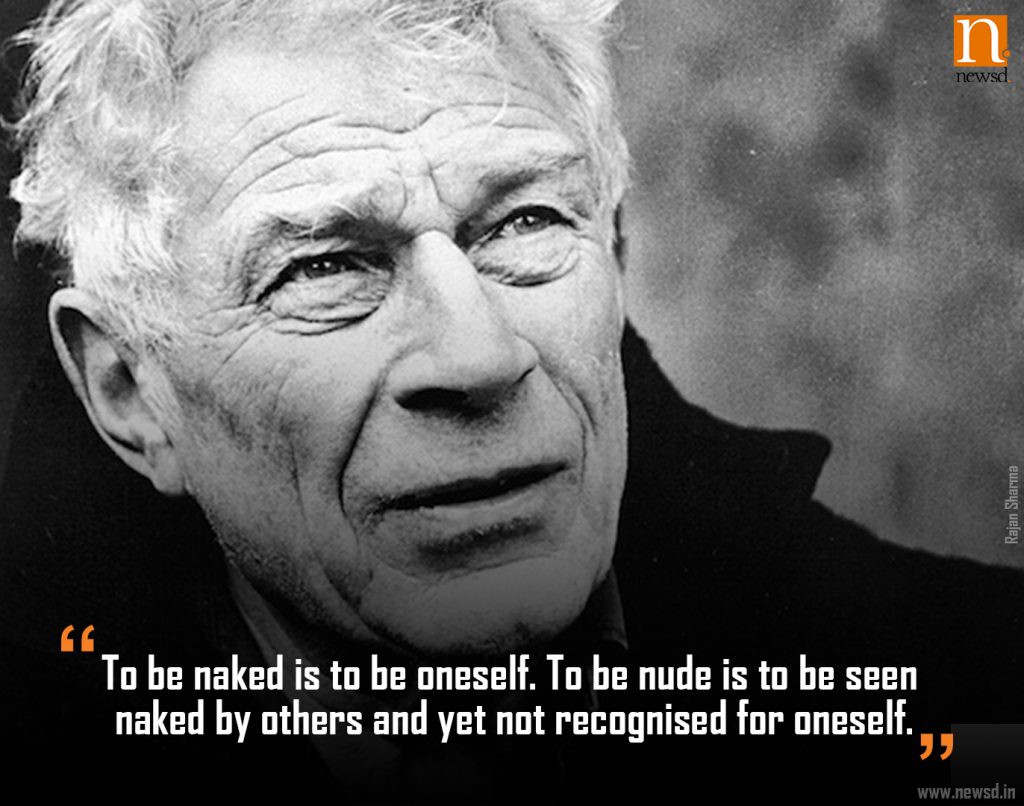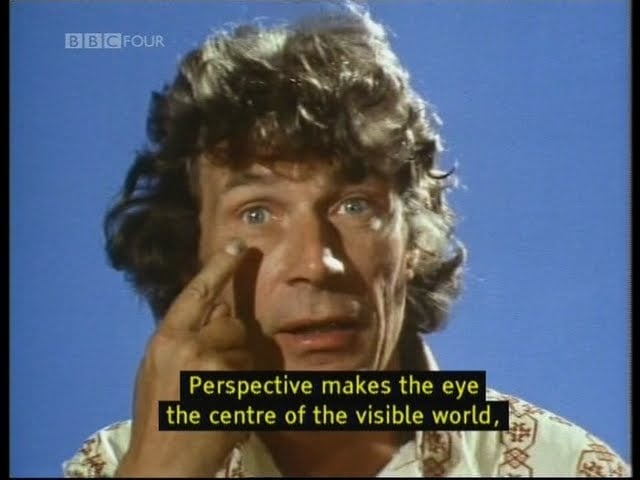
The continuity, however, between oil painting and publicity goes far deeper than the 'quoting' of specific paintings. Publicity relies to a very large extent on the language of oil painting. It speaks in the same voice about the same things.
Men act and women appear. Men look at women. Women watch themselves being looked at.







Nudity is placed on display. The nude is condemned to never being naked. Ways of seeing john berger 1972 seeing comes before words.
John Berger / Ways of Seeing , Episode 1 (1972)
A BAFTA award-winning BBC series with John Berger, which rapidly became regarded as one of the most influential art programmes ever made. In the first programme, Berger examines the impact of photography on our appreciation of art from the past. Ways of Seeing is a 1972 BBC four-part television series of 30-minute films created chiefly by writer John Berger and producer Mike Dibb. Berger's scripts were adapted into a book of the same name. The series and book criticize traditional Western cultural aesthetics by raising questions about hidden ideologies in visual images. The series is partially a response to Kenneth Clark's Civilisation series, which represents a more traditionalist view of the Western artistic and cultural canon.
John Berger Ways of Seeing all 4 (trigger warning, there is a clip of an execution 22 minutes in)
John Peter Berger (born 5 November 1926) is an English art critic, novelist, painter, poet and author. His novel G. won the 1972 Booker Prize, and his essay on art criticism Ways of Seeing, written as an accompaniment to a BBC series, is often used as a university text. Berger began his career as a painter and exhibited work at a number of London galleries in the late 1940s.[2] His art has been exhibited at the Wildenstein, Redfern and Leicester galleries in London. Berger has continued to paint throughout his career.[3] While teaching drawing (from 1948 to 1955), Berger became an art critic, publishing many essays and reviews in the New Statesman. His Marxist humanism and his strongly stated opinions on modern art made him a controversial figure early in his career. He titled an early collection of essays Permanent Red, in part as a statement of political commitment, and later wrote that before the Soviet Union achieved nuclear parity with the United States he had felt constrained not to criticize the former's policies; afterwards his attitude toward the Soviet state became considerably more critical. After a childless first marriage, Berger has three children: Jacob, a film director; Katya, a writer and film critic; and Yves, an artist. In 1958 Berger published his first novel, A Painter of Our Time, which tells the story of the disappearance of Janos Lavin, a fictional exiled Hungarian painter, and his diary's discovery by an art critic friend called John. The book's political currency and detailed description of an artist's working process led to some readers mistaking it for a true story. After being available for a month, the work was withdrawn by the publisher, under pressure from the Congress for Cultural Freedom.[4] The novels immediately succeeding A Painter of Our Time were The Foot of Clive and Corker's Freedom; both presented an urban English life of alienation and melancholy. In 1962 Berger's distaste for life in Britain drove him into a voluntary exile in France. In 1972 the BBC broadcast his television series Ways of Seeing (directed by Mike Dibb) and published its companion text, an introduction to the study of images. The work was in part derived from Walter Benjamin's essay The Work of Art in the Age of Mechanical Reproduction. Berger's novel G., a romantic picaresque set in Europe in 1898, won both the James Tait Black Memorial Prize and the Booker Prize in 1972. When accepting the Booker Berger made a point of donating half his cash prize to the Black Panther Party in Britain, and retaining half to support his work on the study of migrant workers that became A Seventh Man, insisting on both as necessary parts of his political struggle.[5] Many of his texts, from sociological studies to fiction and poetry, deal with experience. Berger's sociological writings include A Fortunate Man: The Story of a Country Doctor (1967) and A Seventh Man: Migrant Workers in Europe (1975). His research for A Seventh Man led to an interest in the world which migrant workers had left behind: isolated rural communities. It was his work on this theme that led him to settle in Quincy, a small village in the Haute-Savoie, where he has lived and farmed since the mid-1970s. Berger and photographer Jean Mohr, his frequent collaborator, seek to document and to understand intimately the lived experiences of their peasant subjects. Their subsequent book Another Way of Telling discusses and illustrates their documentary technique and treats the theory of photography both through Berger's essays and Mohr's photographs. His studies of single artists include most prominently The Success and Failure of Picasso (1965), a survey of the modernist's career; and Art and Revolution: Ernst Neizvestny, Endurance, and the Role of the Artist, on the Soviet dissident sculptor's aesthetic and political contributions. In the 1970s Berger collaborated with the Swiss director Alain Tanner on several films; he wrote or co-wrote La Salamandre (1971), The Middle of the World (1974) and Jonah who will be 25 in the year 2000 (1976).[6] His major fictional work of the 1980s, the trilogy Into Their Labours (made up of the novels Pig Earth, Once in Europa, and Lilac and Flag), treats the European peasant experience from its farming roots into contemporary economic and political displacement and urban poverty.
John Berger on Ways of Seeing, being an artist, and Marxism (2011) - Newsnight archives
John Berger - artist, writer, critic and broadcaster - has died at the age of 90. His best-known work was Ways of Seeing, a criticism of western cultural aesthetics. For Newsnight, Gavin Esler, met him back in 2011. More from Newsnight archives here: youtube.com/watch?v=VwAXBuPkTYI&list=PLJxnQXiytA_Q5B1QoksCKI9-igDxDqqpN Newsnight is the BBC's flagship news and current affairs TV programme - with analysis, debate, exclusives, and robust interviews. Website: bbc.co.uk/newsnight YouTube: youtube.com/user/BBCNewsnight Twitter: twitter.com/BBCNewsnight Facebook: facebook.com/bbcnewsnight Snapchat: snapchat.com/add/bbcnewsnight
Conclusion from John Berger Ways Of Seeing Quotes
It is seeing which establishes our place in the surrounding world; We explain that world with words, but word can never undo the fact that we are surrounded by it. Ways of seeing john berger. The ultimate resource for assignments, engaging lessons, and lively book discussions;
“mystification has little to do with the vocabulary used. Mystification is the process of explaining away what might otherwise be evident. ”.
